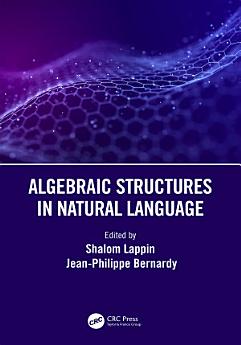Algebraic Structures in Natural Language
About this ebook
This book addresses the learning procedures through which humans acquire natural language, and the way in which they represent its properties. It brings together leading researchers from computational linguistics, psychology, behavioral science and mathematical linguistics to consider the significance of non-algebraic methods for the study of natural language. The text represents a wide spectrum of views, from the claim that algebraic systems are largely irrelevant to the contrary position that non-algebraic learning methods are engineering devices for efficiently identifying the patterns that underlying grammars and semantic models generate for natural language input. There are interesting and important perspectives that fall at intermediate points between these opposing approaches, and they may combine elements of both. It will appeal to researchers and advanced students in each of these fields, as well as to anyone who wants to learn more about the relationship between computational models and natural language.
About the author
Shalom Lappin is a Professor of Computational Linguistics at the University of Gothenburg, Professor of Natural Language Processing at Queen Mary University of London and Emeritus Professor of Computational Linguistics at King’s College London. His research focuses on the application of machine learning and probabilistic models to the representation and the acquisition of linguistic knowledge.
Jean-Philippe Bernardy is a researcher at the University of Gothenburg. His main research interest is in interpretable linguistic models, in particular, those built from first principles of algebra, probability and geometry.






